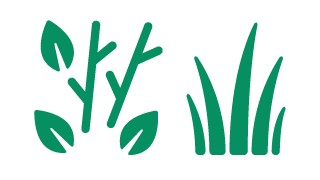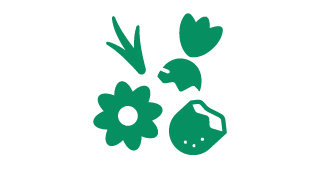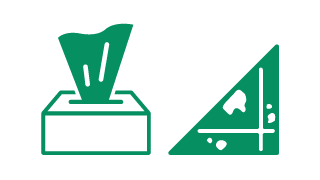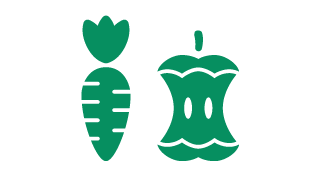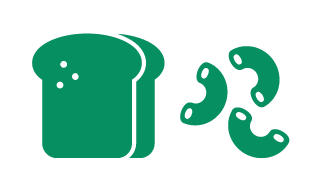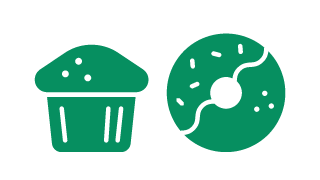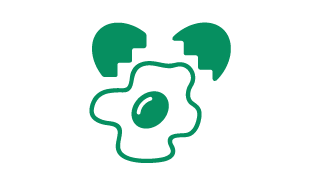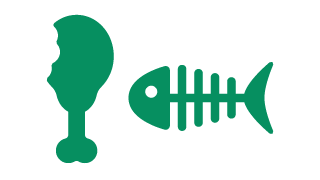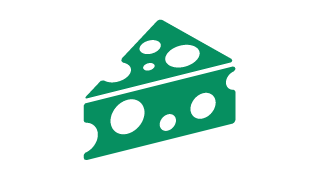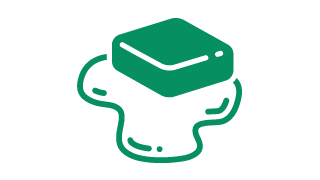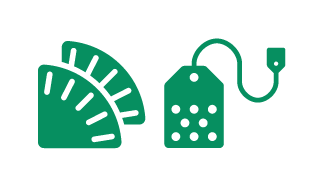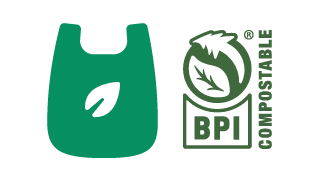Business Organics

All businesses and organizations that generate food or yard waste in Saskatoon are required to separate organic materials from the garbage. The organics regulation means all businesses and organizations are required to:
- Have separate labelled containers for garbage, recycling and organics.
- Educate employees and tenants annually about which materials are organic and how to sort them.
- Ensure organic waste is removed and taken to an appropriate facility.
Education phase began in October 2023, and enforcement will not begin until October 2024 to give businesses and organizations time to meet the new bylaw regulation.
Check out the Organics Guide for Businesses and Organizations for more information on how to set up your organics program.
Who does this bylaw apply to?
If your establishment belongs under North American Industry Classification System (NAICS) codes of industries that are known to generate organic waste, this bylaw regulation applies regardless of establishment size or number of employees or tenants.
Food Services
Including but not limited to:
- restaurants and cafes (fast food or sit-down)
- coffee shops
- hotels (room service, banquet services, or restaurant on site)
- health care facilities (hospitals, nursing and residential care facilities)
- hospitality or entertainment facilities with food or banquet services
- food concessions at sports and similar facilities
- schools (cafeterias, nutrition programs, Food Studies classrooms)
- mobile food services
- leased food-service locations in facilities such as hotels, shopping malls, airports and department stores.
Beverage, food and tobacco manufacturers
Daycare services
Florists
Landscaping services
Nurseries and garden centres
Supermarkets and other grocery stores
Including but not limited to:
- fruit and vegetable markets
- meat and deli markets
- fish and seafood markets
- baked goods retailers
- food wholesalers
- convenience stores
- auction houses that sell food products.
Home-based businesses are not included in this regulation as they have access to the residential waste diversion programs. However, they are responsible for the removal of materials that exceed the capacity of their residential containers.
Who can apply for an exemption?
Businesses and organizations that fall under the new regulation may apply for an exemption if one or more of the following criteria is met:
- The premises does not routinely generate recyclable or organic material;
- There are risks that cannot be mitigated to the satisfaction of local waste processors and that inhibit the ability of the premises to dispose of waste as required;
- Due to a large production of a single type of organic waste, the premises is unable to find a local waste processor; or
- For any other reason outside of its control, the premises is unable to satisfy the requirements of this Part.
To obtain an exemption, businesses may complete a self-declaration form stating the reason for exemption and provide supporting documentation. Exemptions will be reviewed for approval by the City of Saskatoon.
Businesses who do not produce food or yard waste as part of their operations do NOT have to fill out an exemption form. If you are unsure as to whether the criteria applies to you or not, please contact business.waste@saskatoon.ca
What is considered organic waste?
Organics are materials such as food waste (table and kitchen scraps), food-soiled paper products and unbagged yard waste (leaves, grass clippings and other plants) that can be turned into a nutrient-rich mixture through decomposition processes and added to soil to improve its quality.
yogurt, butter and cheese |
||
Resources
Organic Waste Haulers in Saskatoon
Allan's Landscaping and Disposal - 306-384-4763
Loraas Disposal - 306-242-2300
Super Save Disposal (Saskatchewan) Inc. - 306-956-2477
If you are a service provider for organics collection from businesses in Saskatoon and want to be added to this list, please contact business.waste@saskatoon.ca
Guides & Forms
- Organics Guide for Businesses and Organizations
- Business Organics Fact Sheet
- Business Exemption Form
- Sample Letter to Employees or Tenants - Organics
- Sample Letter to Employees or Tenants - Recycling
Business Signage
Organizations Accepting Food Donations in Saskatoon
Please contact the organization before making any donations. More locations will be added as they are confirmed.
- Saskatoon Food Bank & Learning Centre - 202 Ave. C South - (306) 664-6565
- Saskatoon Friendship Inn - 619 20th St. West - (306) 242-5122
- EGADZ - 485–1st Avenue North - (306) 931-6644
- Loop (for local farms wanting organic material and local grocery stores who have organic material for them)
(778) 949-8003 - Second Harvest food rescue - join the network as a food donor or recipient non-profit organization. (416) 408-2594
- One Small Step has a current list of organizations accepting food donations
If you are an organization in Saskatoon that accepts donations of food and want to be added to this list, please contact business.waste@saskatoon.ca
Through food rescue, we can reduce the amount of edible food that is going into the landfill while benefiting charitable organizations and the people they serve.
Business Waste Wizard
The Business Waste Wizard materials database will be driven by suggestions from the business community. If an item is searched and not found, there is opportunity to suggest that item as a new item in the database.
If you are a recycling or organics service provider in Saskatoon, or an organization that accepts donations of food, and would like to be included in our Business Waste Wizard as an option for local businesses and organizations, contact business.waste@saskatoon.ca
Waste Audits
Conducting a waste audit can help you design a more effective program by providing information about what is being landfilled, how much and where it’s coming from. It can also give you a starting point to set goals and measure waste diversion progress year-to-year.
There are a number of ways to conduct an audit.
Do a quick and simple visual assessment. Take a look inside all of your waste bins. Estimate the types and approximate quantities of recyclable and food and yard waste materials you have in each bin. - Complete a do-it-yourself waste audit.
- Hire a third-party consultant to complete a waste audit.
For more information on how to complete a do-it-yourself audit, how to find a third-party consultant to complete one or to request a site visit or a lunch and learn, please contact business.waste@saskatoon.ca.
Donation, Reduction and Reuse Options
Before putting in place an organics container system, consider options to reduce or repurpose food and yard materials. These options are permitted under the Bylaw and encouraged as a preferred method of organics diversion over composting and landfilling. As well as helping your community, this can potentially reduce your requirements for organics diversion containers.
- Use information from your waste audit to adjust menus, purchasing and portion sizes.
- Discuss food waste prevention strategies with your staff.
- Find a charitable organization that can use your organic waste for human or animal consumption. Please contact the organization before making any donations. More locations will be added as they are confirmed.
- Organizations Accepting Food Donations in Saskatoon
- Saskatoon Food Bank & Learning Centre - 202 Ave. C South - (306) 664-6565
- Saskatoon Friendship Inn - 619 20th St. West - (306) 242-5122
- EGADZ - 485–1st Avenue North - (306) 931-6644
- Loop (for local farms wanting organic material and local grocery stores who have organic material for them)
(778) 949-8003 - Second Harvest food rescue - join the network as a food donor or recipient non-profit organization. (416) 408-2594
- One Small Step has a current list of organizations accepting food donations
- Consider composting on-site (see more information below).
Visit the Resources section for more information on charitable organizations in Saskatoon that accept food donations, and for additional information on reduction and reuse options.
Food Donation Protections
In Saskatoon, there are multiple agencies that have an urgent need for food donations, but often restaurants and grocery stores are hesitant to donate food in case someone falls ill after consuming these well-intended donations. There are protections in place to protect those who act in good faith when addressing community food needs.
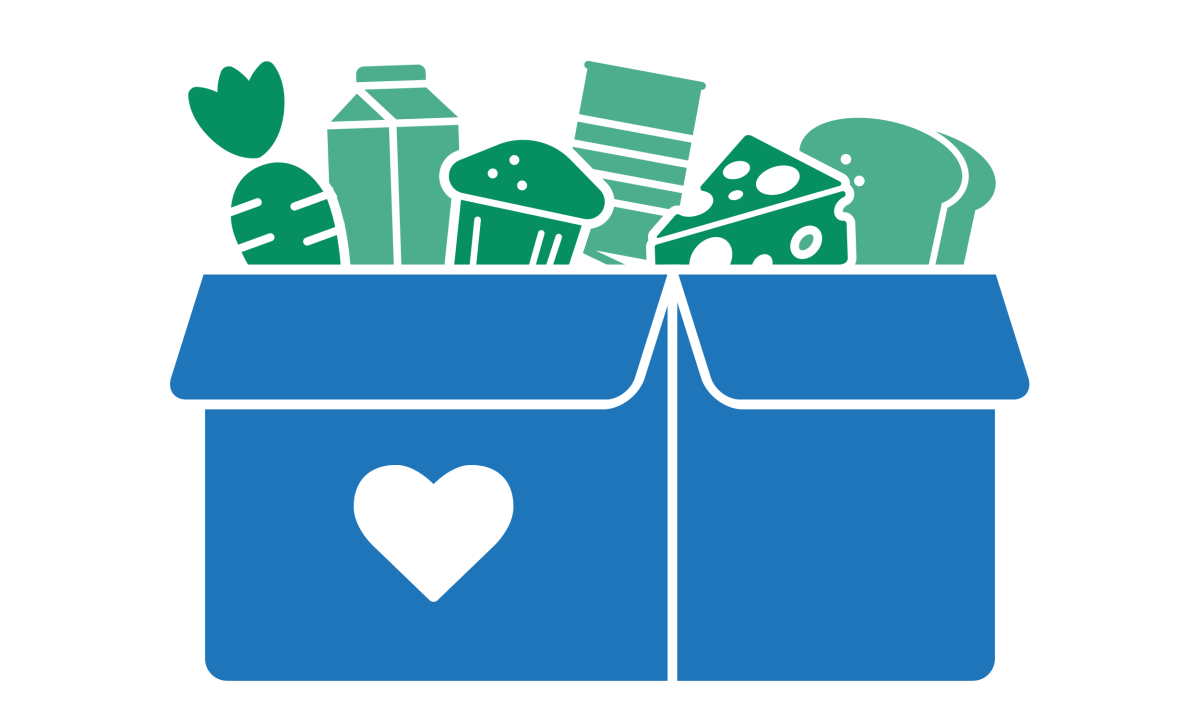
In every part of Canada, the law provides protections for companies and individuals who donate food rather than throwing it away. In Saskatchewan, details can be found in Donation of Food Act, 1995, The SS 1995, c D-32.01.
Agricultural Needs
For organics no longer fit for human consumption, there are many local farms that have use for these materials as animal feed or compost. There are programs that put donors in touch with local farmers who have multiple uses for these materials.
The Loop program helps close the loop on organics waste disposal in the food supply industry, taking food from the end of the line at the store, back to the beginning as feed and compost at local farms. Contact Loop for more information.
Many businesses and organizations across Saskatoon are already donating organics through community, provincial, and federal organizations. Consider donations of organics to your community and local farms before your items are placed in organic containers for compost.
On-Site Composting
Are you interested in using your own workplace-generated waste into compost for your own use? Depending on location and type of organic waste production, on-site composting could be another way to divert organic material from the garbage while still meeting bylaw requirements. Reach out to business.waste@saskatoon.ca to apply for approval to compost on site.
Some information to get you started can be found here.
Why do we need this bylaw?
Businesses and organizations generate 68% of the garbage in our community. Approximately 25% is organic waste that could rescued or composted.
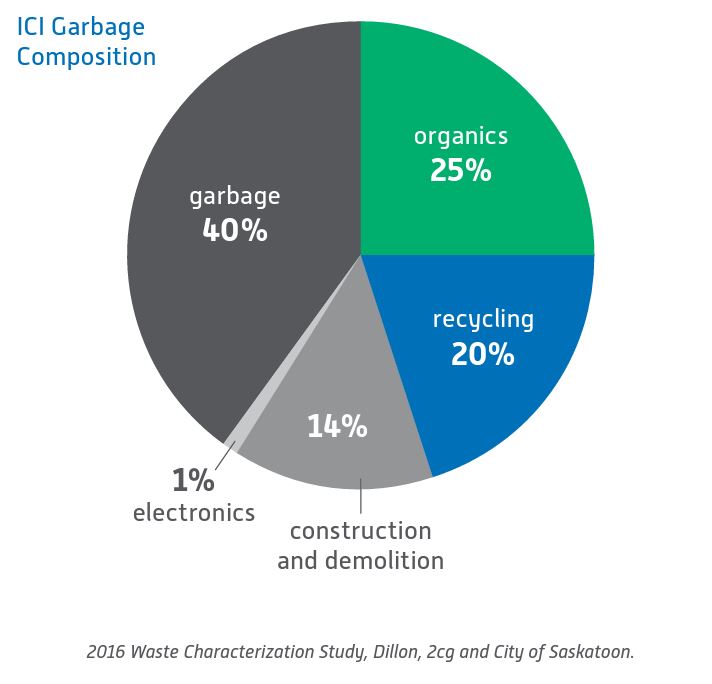
Food and yard waste disposed of at the landfill becomes pollution, not soil.
Landfills bury food and yard waste, which leads waste to decompose in the absence of oxygen. When this type of waste breaks down in this environment, it turns into leachate (garbage juice) and methane.
Leachate pollutes our land and water, and needs to be managed under strict environmental regulations. Methane can escape into the atmosphere and is a much more potent greenhouse gas than carbon dioxide. Both of these pollutants are expensive for landfills to manage.
It’s important to properly manage your business or organization’s food and yard waste, just like you manage recycling and garbage. By diverting food and yard waste, we can reduce our dependence on landfills, minimize the harmful environmental effects of food and yard waste in landfills, and produce useful new resources, such as compost.
Check out the Organics Guide for Businesses and Organizations for more information on how to set up your organics program.

